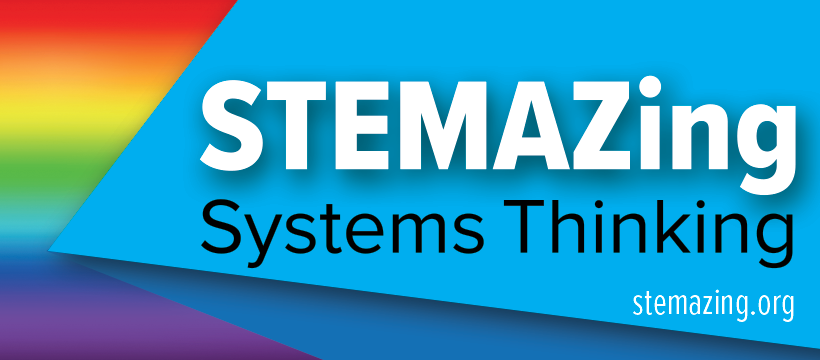6-8
ACS Inquiry in Action: Chapter 4 – Conservation of Mass
NOTE: Those these are indicated for 5th grade, they align with both 5th grade and 8th grade AzSS standards. Through exploring melting, dissolving, and chemical change, students discover that mass is conserved during all these processes. Lesson 4.1 – Conservation of Mass Students measure the mass of substances before and after melting, dissolving, and a…
Read MoreACS Inquiry in Action: Chapter 3 – Substances Can Mix and React to Form New Substances
NOTE: Those these are indicated for 5th grade, they best align with both 5th and 8th grade AzSS standards. Students use baking soda, calcium chloride and other common substances to discover that when certain substances combine, a chemical reaction takes place, and new substances are formed. Lesson 3.1 – What’s the Difference between Baking Soda…
Read MoreACS Inquiry in Action: Chapter 2 – Substances Have Characteristic Properties
NOTE: Those these are indicated for 5th grade, they best align with 8th grade AzSS standards. Students investigate the solubility, density, and other properties of solids and liquids to identify substances based on their unique characteristics. Lesson 2.1 – Using Dissolving to Identify Substances Students compare the dissolving of salt and sugar and then conduct…
Read MoreGenetic Drift Lab from BetterLesson
8th Grade AzSS-Aligned Resources
Lessons, videos, storylines, phenomena, and more all curated by The STEMAZing Project to link directly to 2018 Arizona Science Standards. 8.P1U1.1 (NGSS-S: MS-PS1-5) Develop and use a model to demonstrate that atoms and molecules can be combined or rearranged in chemical reactions to form new compounds with the total number of each type of…
Read More7th Grade AzSS-Aligned Resources
Lessons, videos, storylines, phenomena, and more all curated by The STEMAZing Project to link directly to 2018 Arizona Science Standards. 7.P2U1.1 (NGSS-P: MS-PS2-3) Collect and analyze data demonstrating how electromagnetic forces can be attractive or repulsive and can vary in strength. 7.P2U1.2 (NGSS- P: MS-PS2-5) Develop and use a model to predict how forces…
Read More6th Grade AzSS-Aligned Resources
Lessons, videos, storylines, phenomena, and more all curated by The STEMAZing Project to link directly to Arizona Science Standards. 6.P1U1.1 (NGSS-P: MS-PS1-4) Analyze and interpret data to show that changes in states of matter are caused by different rates of movement of atoms in solids, liquids, and gases (Kinetic Theory). 6.P1U1.2 (NGSS-P: MS-PS1-4) Plan…
Read MoreScience is… Science is not… Nature of Science Lesson Virtual
Science is… Science is not… Nature of Science Lesson (in-person classroom version available HERE) is adapted from the University of Indiana’s Evolution and Nature of Science Institute’s Sunsets, Souls, and Senses Lesson. The following STEMAZing Teacher Guide for Science is Science is not Virtual describes how to use this lesson virtually and provides links to…
Read MoreScience is… Science is not… Nature of Science Lesson
From original Sunsets, Souls, and Senses lesson from ENSI (file found below): Explores the realm and limits of science. Engages students to give examples of topics that can be studied by science, and those that cannot. This also takes a look at descriptive terms that reflect the true nature of modern science, and those that do…
Read MoreMiddle School Virtual Orientation to Groupwork Unit
This virtualized version of the Stanford SCALE Science Unit 0 – Orientation to Groupwork for 6th grade. was co-designed by Melissa Wilburn (6th grade STEMAZing Teacher Leader with the Marana Unified School District), Sherrie Dennis (STEMAZing Robot General and Teacher Leader), and DaNel Hogan (Director of The STEMAZing Project). It can be used at any…
Read More